Cell Cycle/Checkpoint
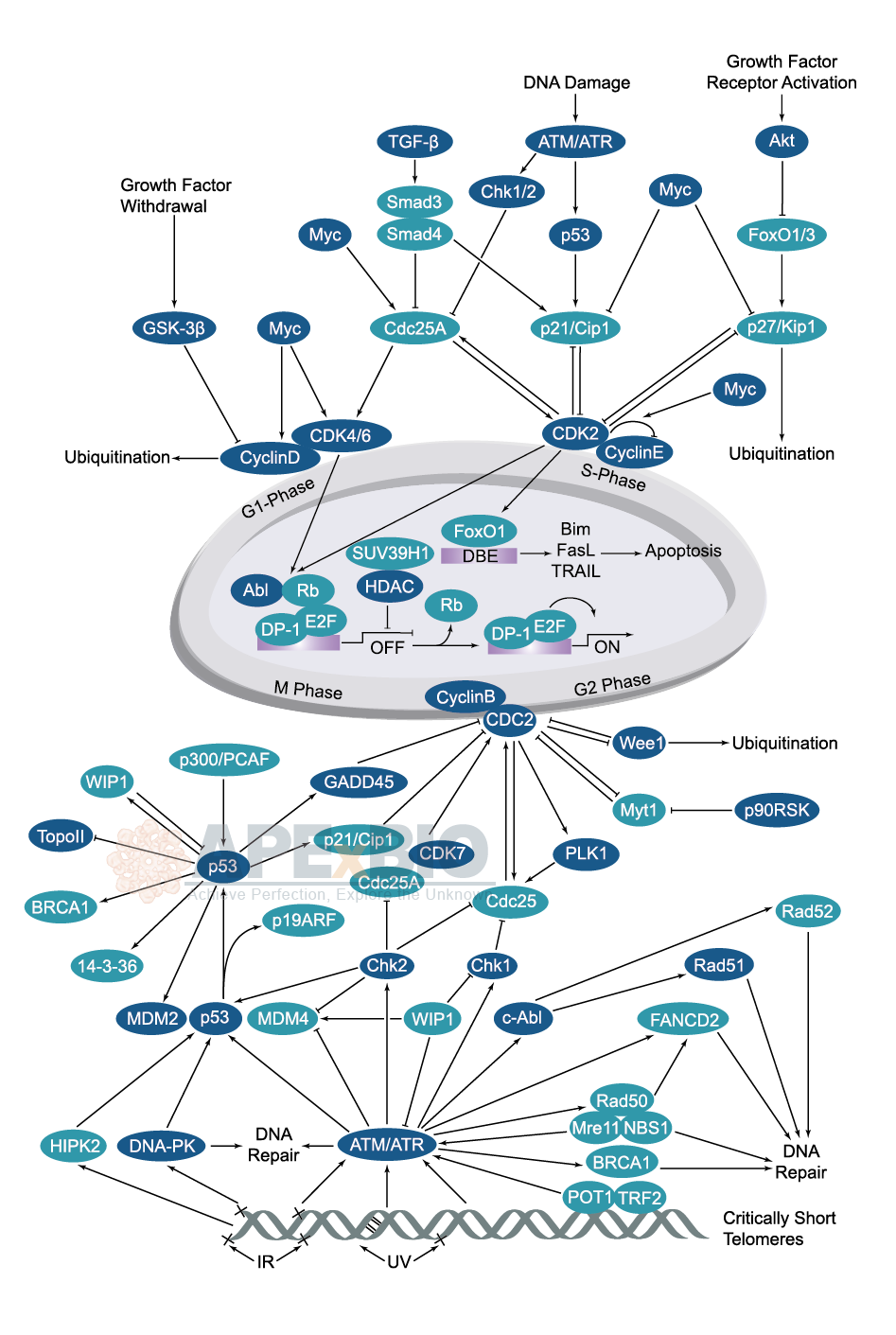
The cell cycle is consisted of 4 main phases: Gap 1 (G1), DNA replication (S), Gap 2 (G2), and mitosis (M). There are “checkpoints” mechanism regulates the transition between these phases, at the G1/S boundary, in the S-phase and during G2/M phases. Cell can only pass through these checkpoints when signaling factors are activated and free of DNA damage. Important proteins that control cell cycle events and checkpoints are cullins, cyclins, cyclin-dependent kinases (Cdks), p53 and their inhibitors etc. Cdks family (Cdk2, Cdk3, Cdk4 and Cdk6) are Ser/Thr kinases that regulate cell cycle progression in association with cyclin binding partners (cyclin D, cyclin E and cyclin A) during all four phases. p53 halts the cell cycle if the DNA is damaged and allowing time for DNA repair to progress; it can also initiate apoptosis if DNA damage is too severe to be repaired.
-
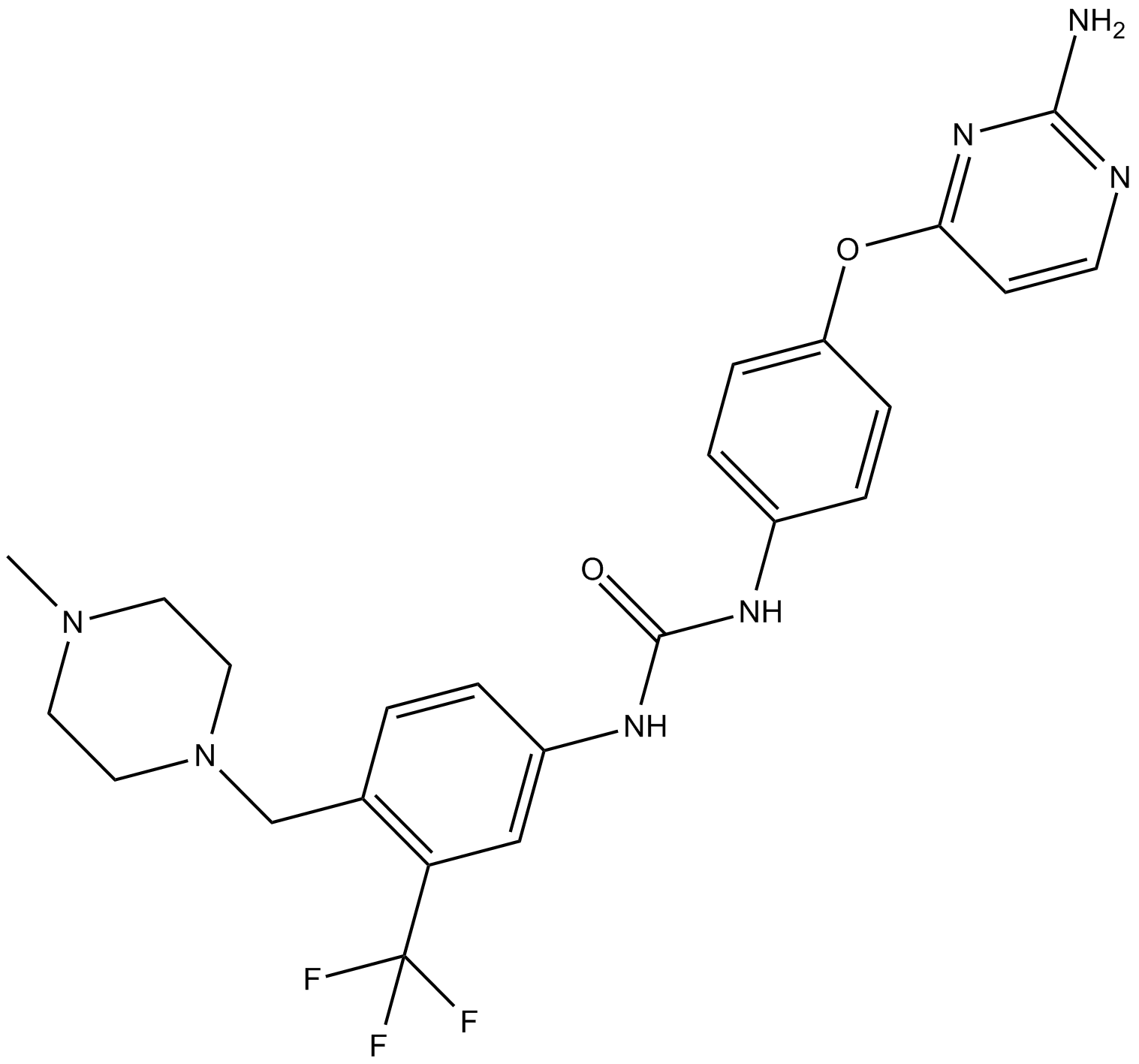 B6042 K03861Summary: CDK2 inhibitor
B6042 K03861Summary: CDK2 inhibitor -
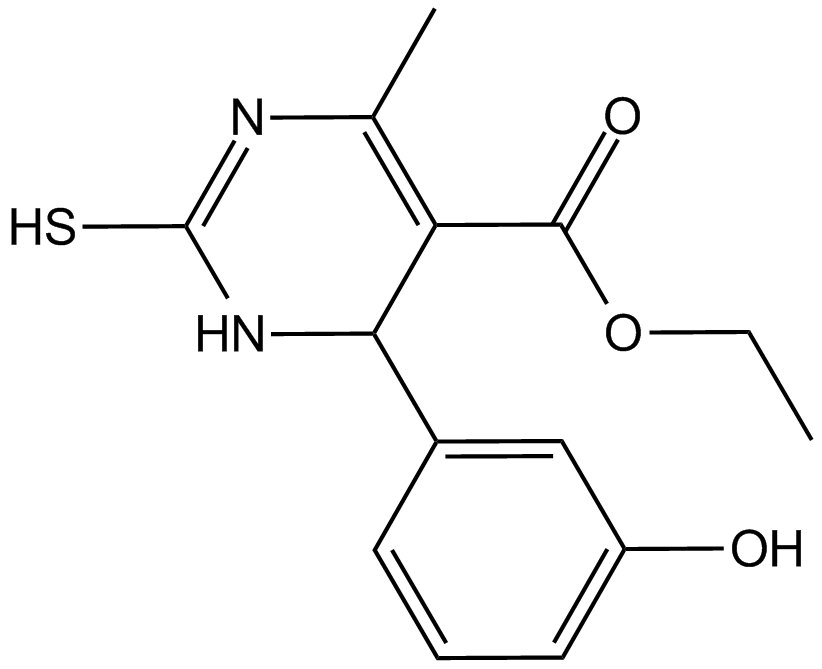 B6075 MonastrolSummary: Eg5 inhibitor
B6075 MonastrolSummary: Eg5 inhibitor -
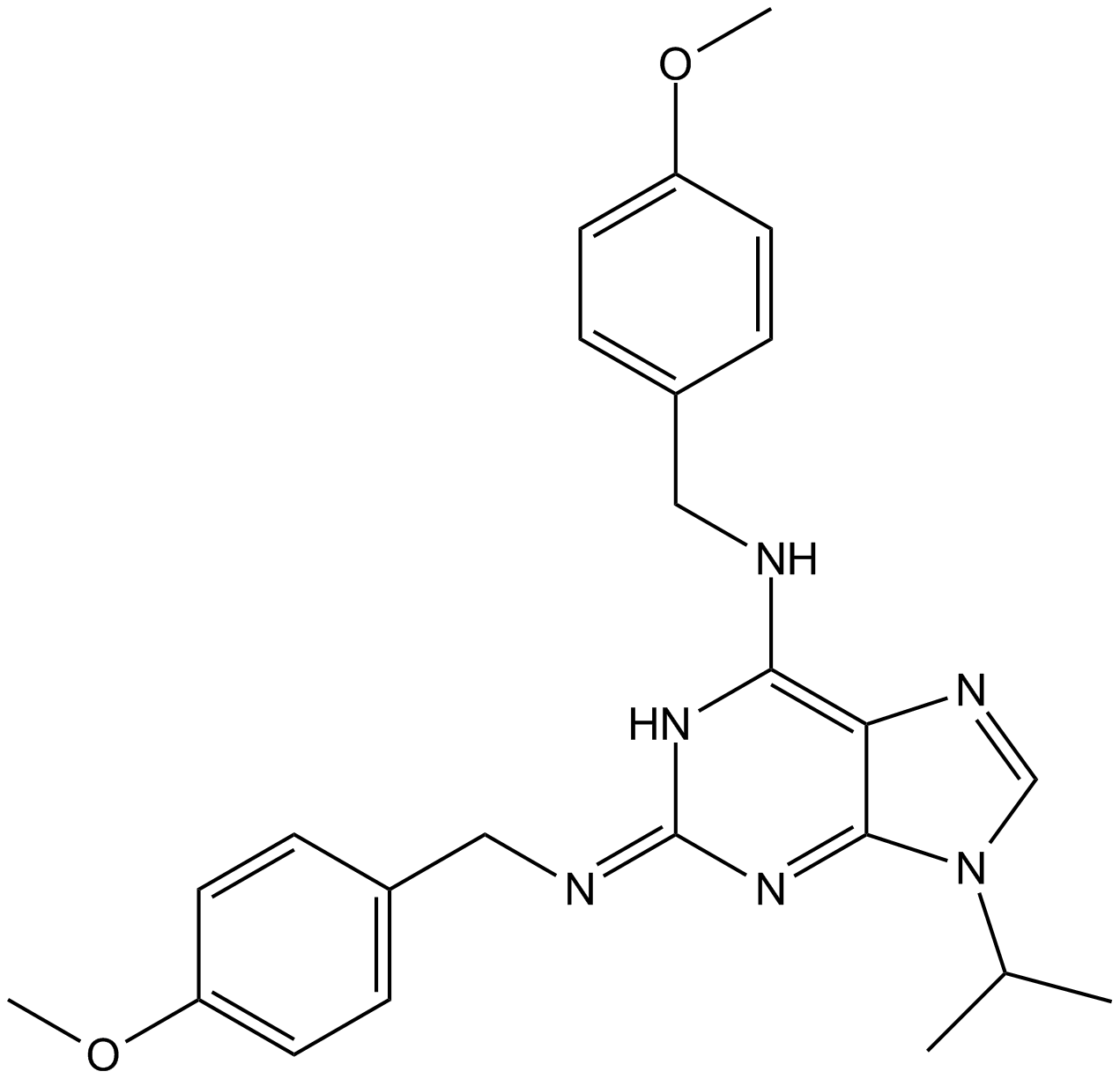 B6076 MyoseverinSummary: microtubule-binding molecule
B6076 MyoseverinSummary: microtubule-binding molecule -
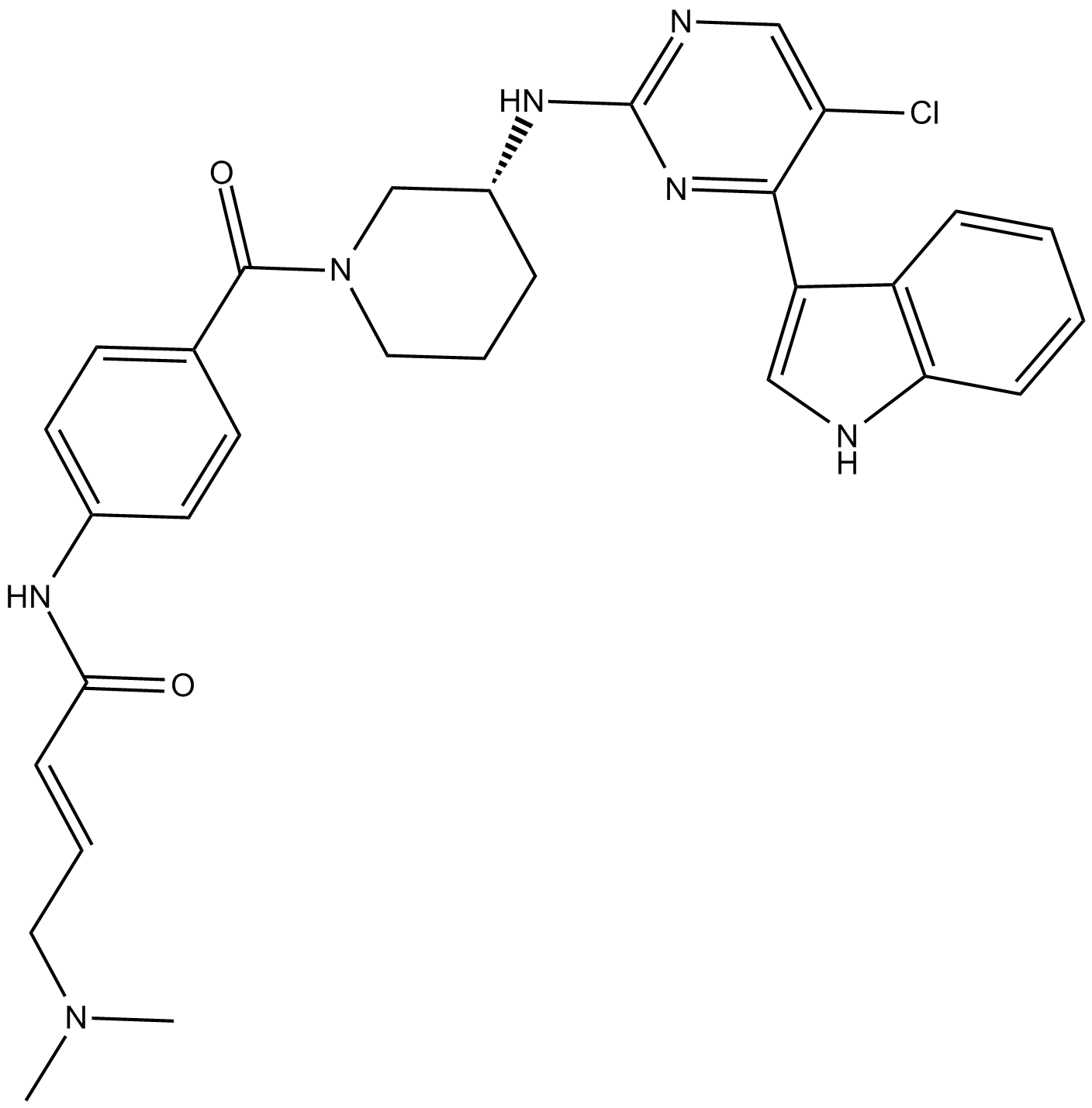 A8736 THZ531Target: Cyclin-Dependent KinasesSummary: CDK12 and CDK13 covalent inhibitor
A8736 THZ531Target: Cyclin-Dependent KinasesSummary: CDK12 and CDK13 covalent inhibitor -
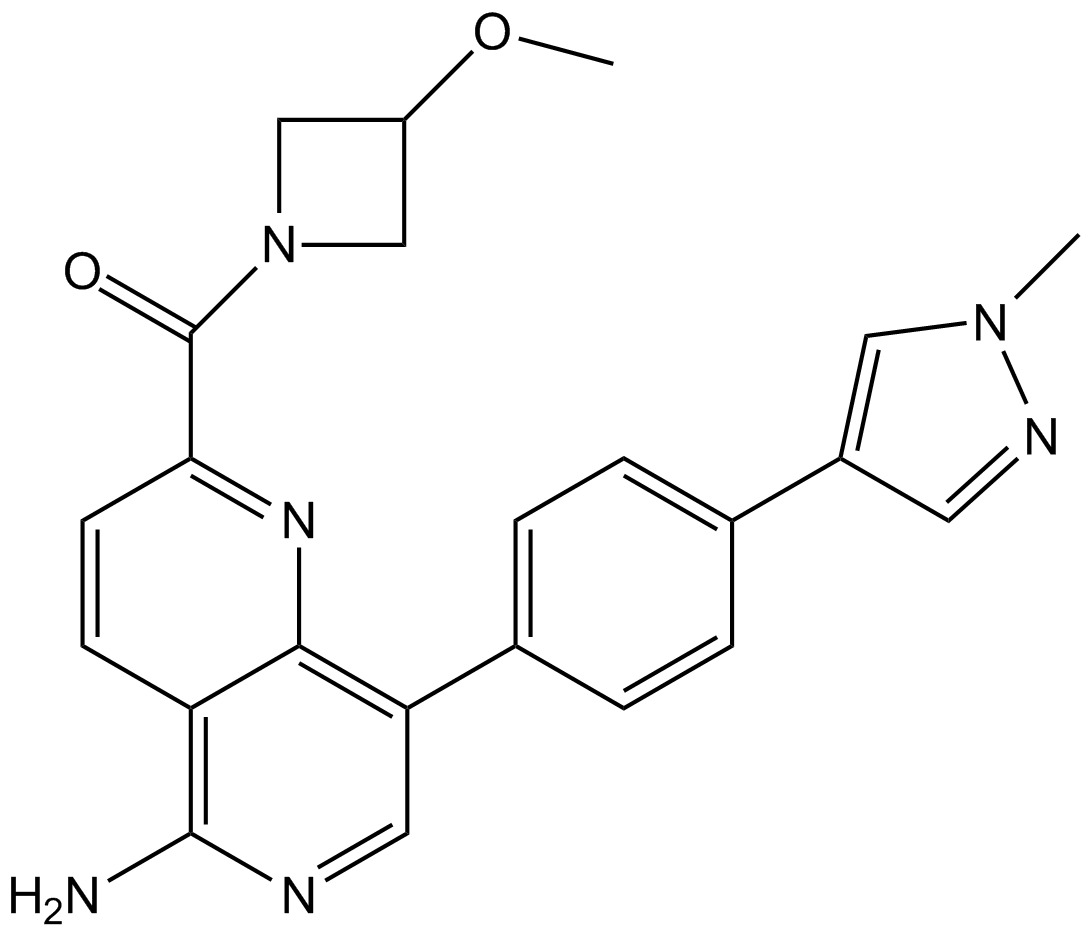 A8739 CCT251545 analogueSummary: Potent, Selective, orally bioavailable CDK 8/19 Inhibitor
A8739 CCT251545 analogueSummary: Potent, Selective, orally bioavailable CDK 8/19 Inhibitor -
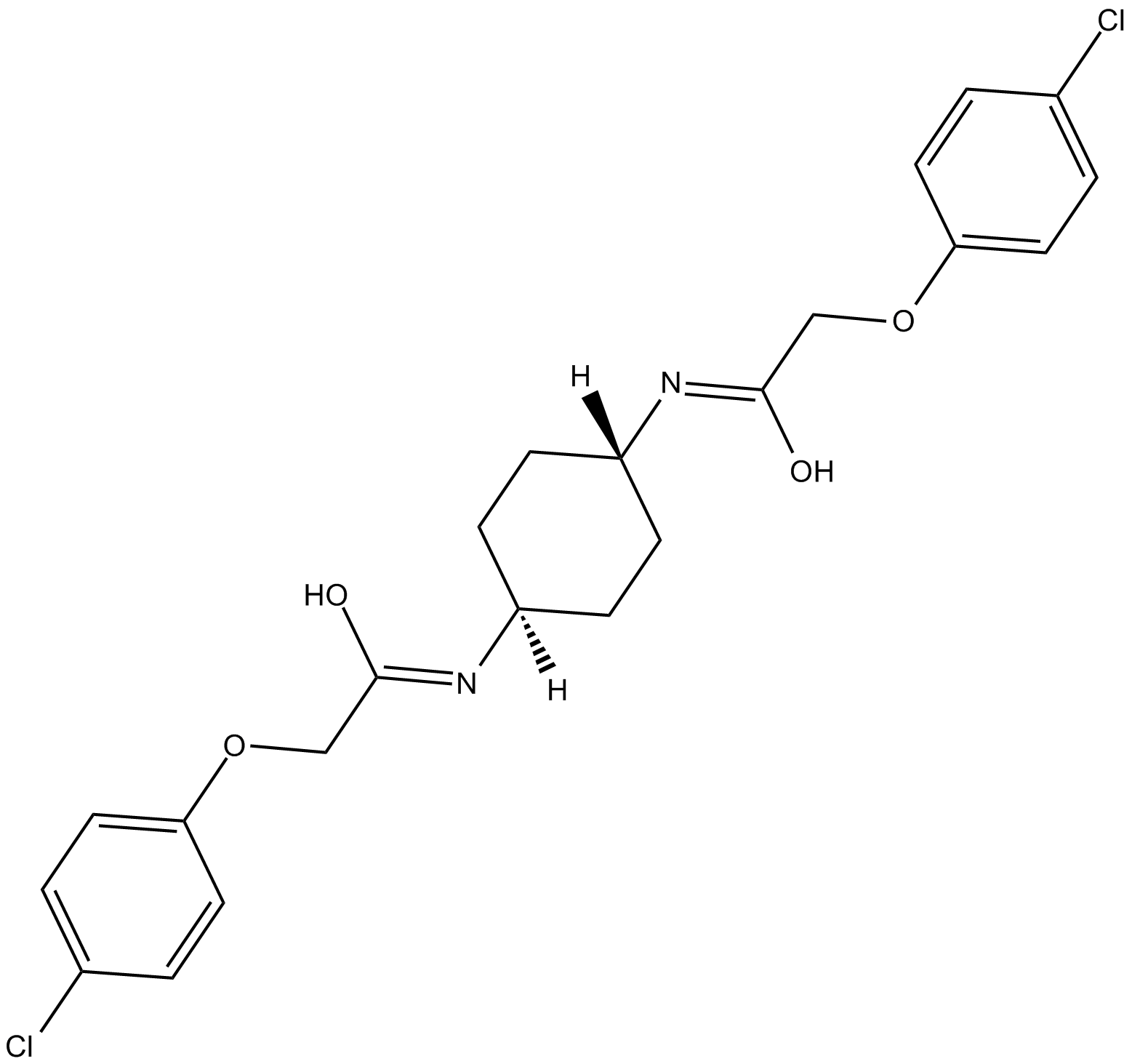 B6093 ISRIBSummary: PERK signaling inhibitor
B6093 ISRIBSummary: PERK signaling inhibitor -
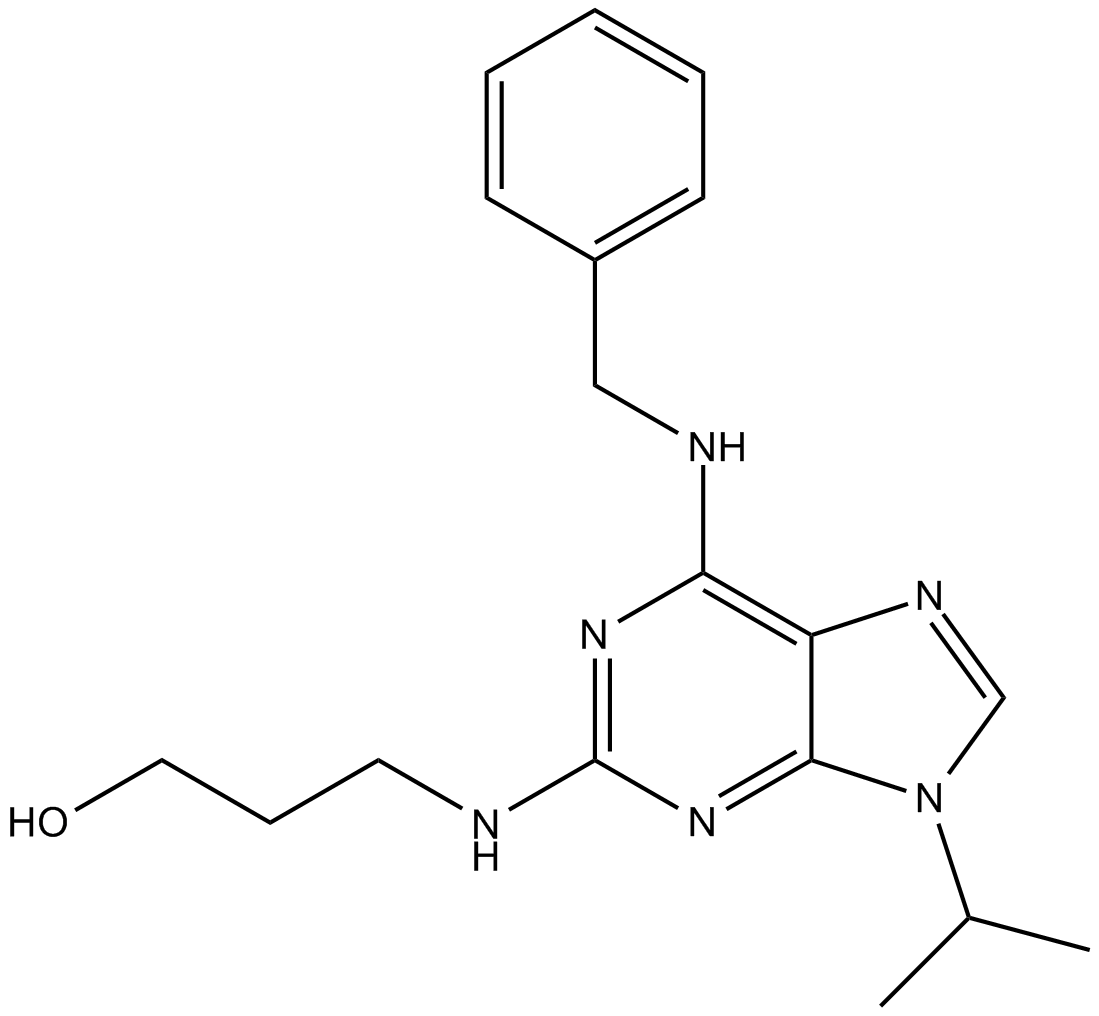 B6101 BohemineSummary: CDK inhibitor
B6101 BohemineSummary: CDK inhibitor -
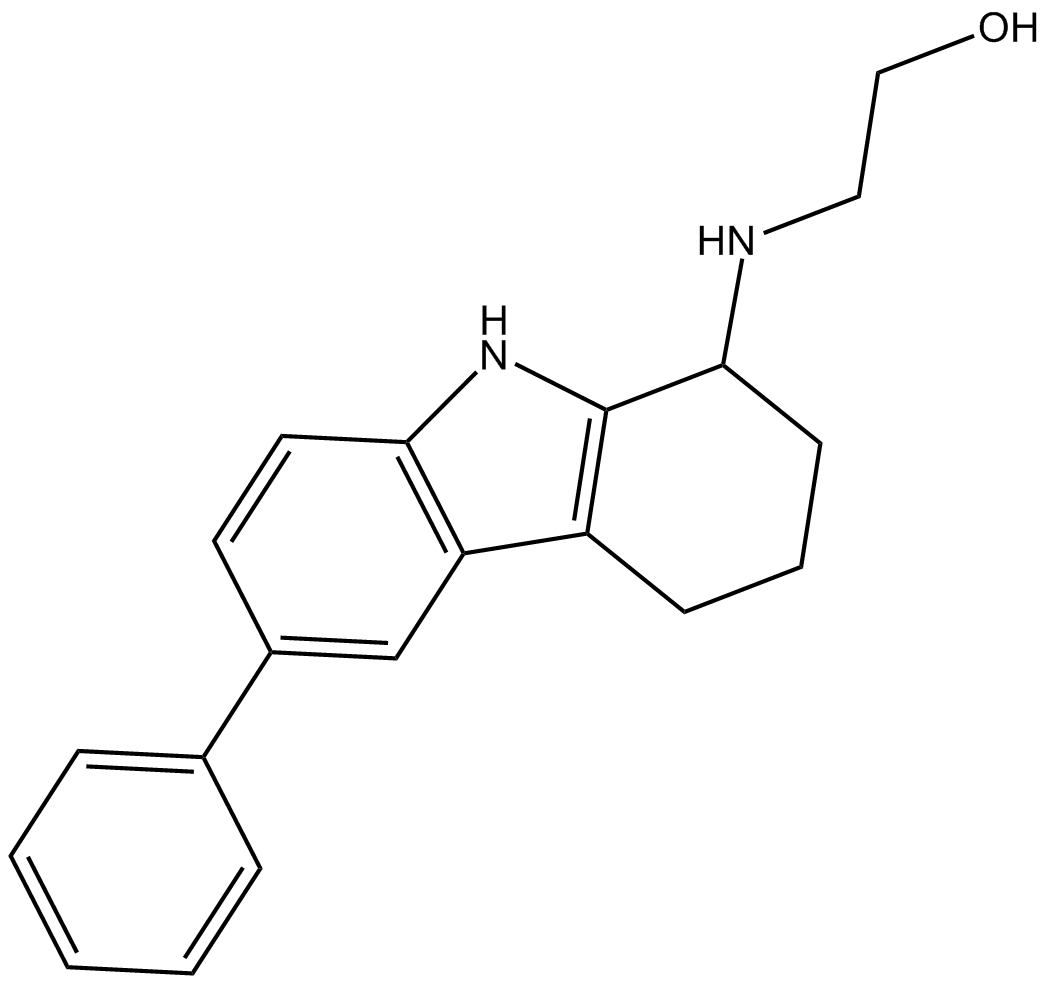 B6103 CasinSummary: GTPase Cdc42 inhibitor
B6103 CasinSummary: GTPase Cdc42 inhibitor -
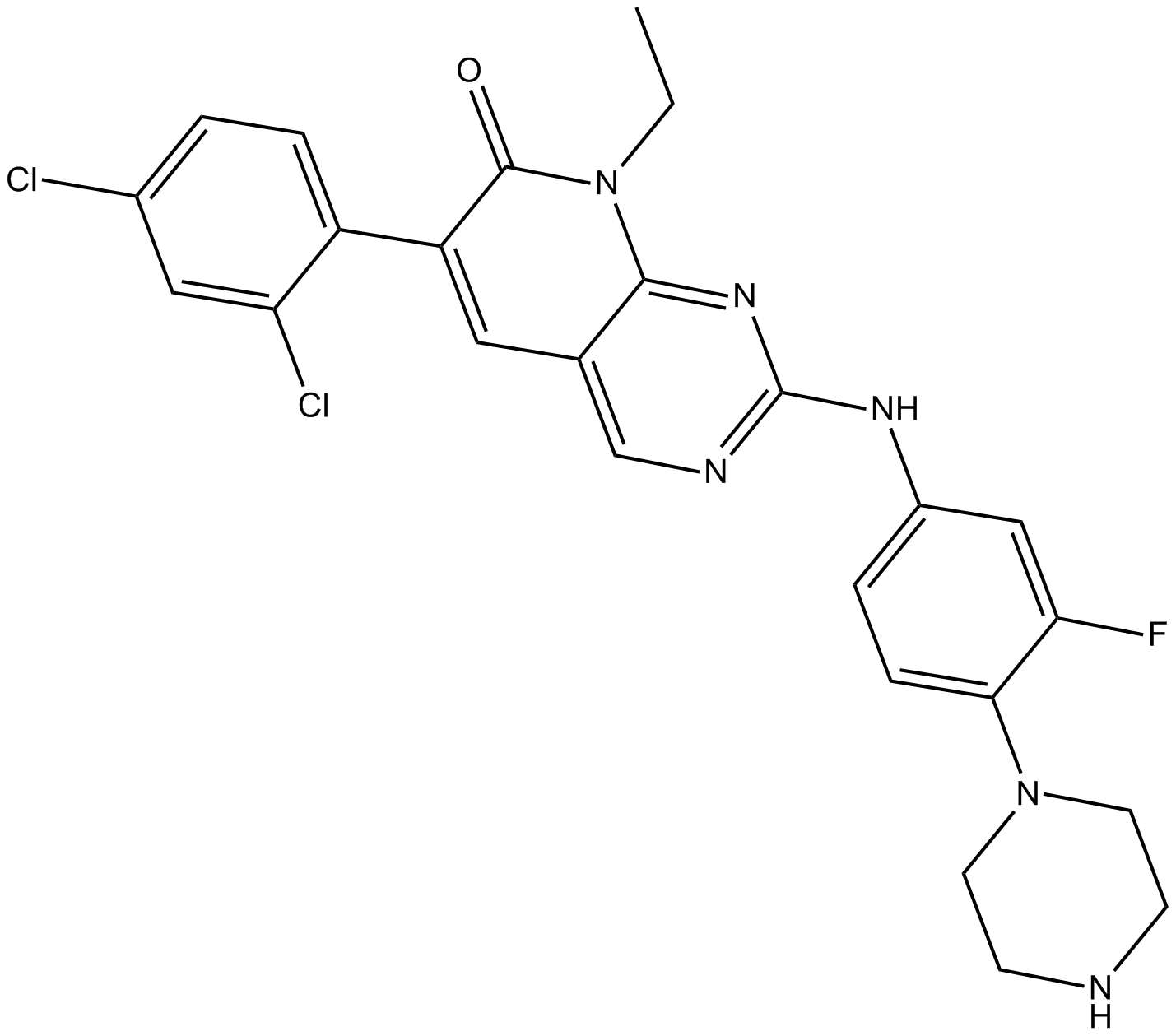 B6165 FRAX486Summary: p21-activated kinase (PAK) inhibitor
B6165 FRAX486Summary: p21-activated kinase (PAK) inhibitor -
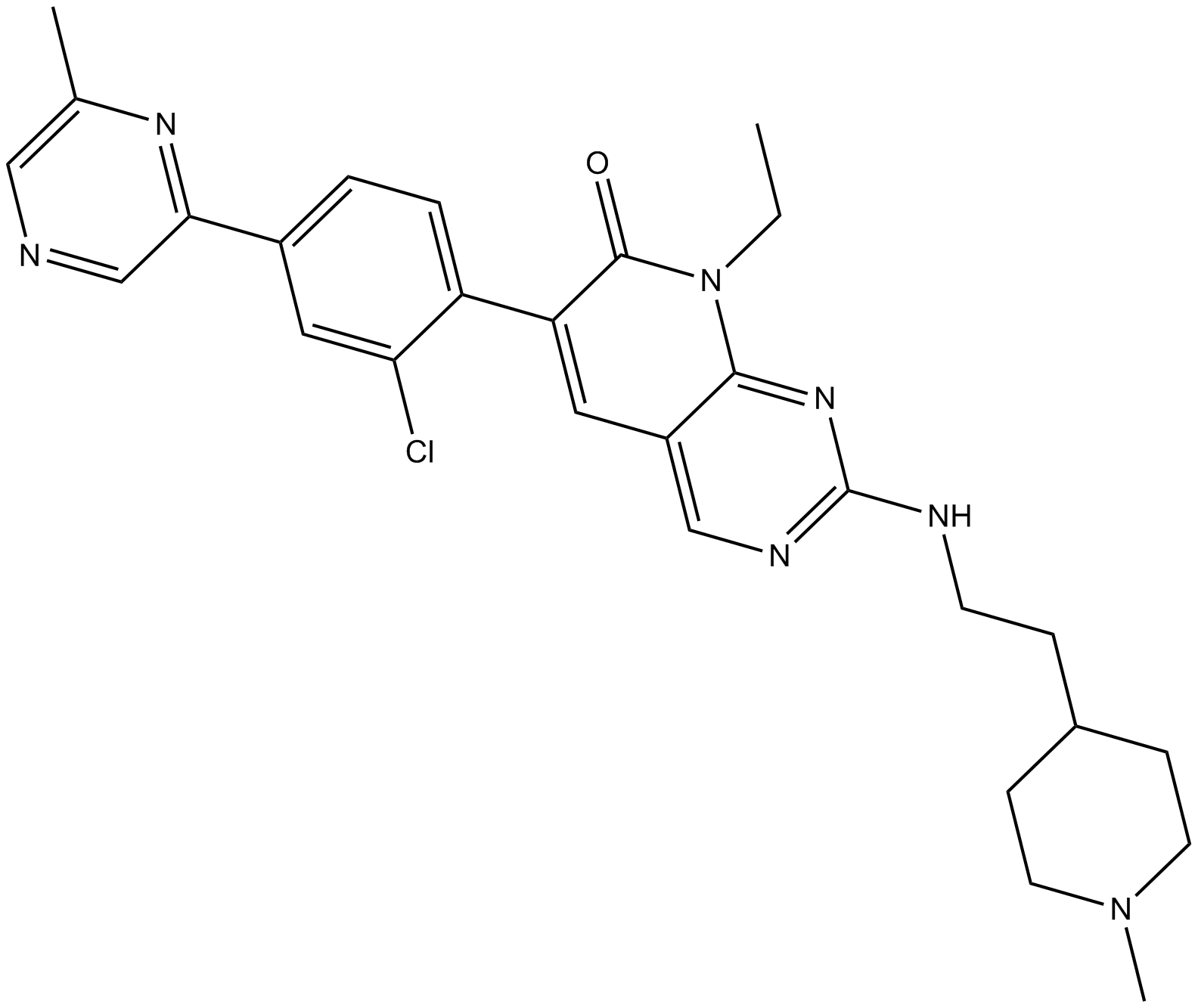 B6180 FRAX1036Summary: p21-activated kinase I (PAK1) inhibitor
B6180 FRAX1036Summary: p21-activated kinase I (PAK1) inhibitor

